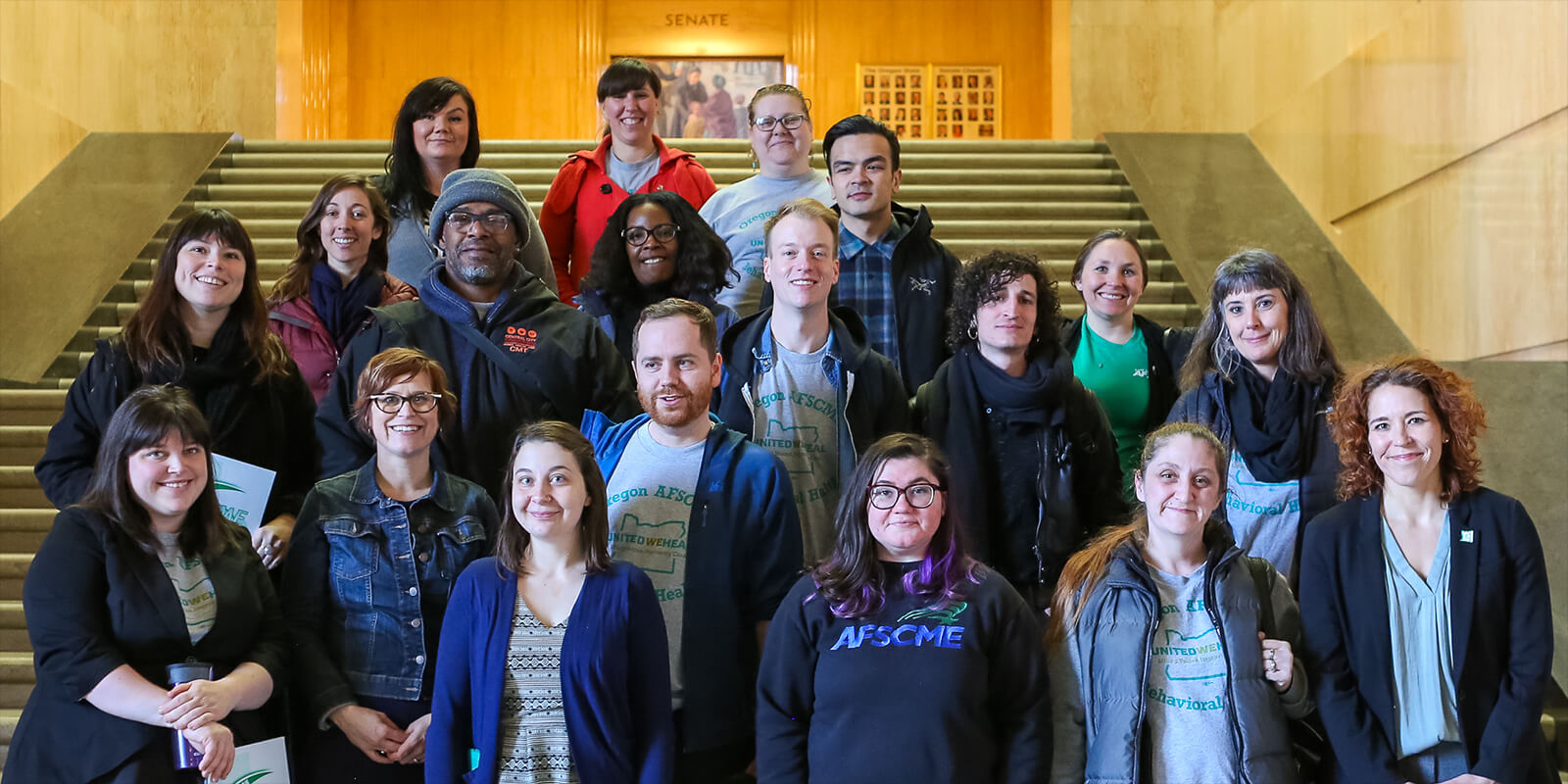Behavioral health members in Oregon are pushing for various worker-friendly policies in the state legislature so they can better serve their clients and their communities.
So far this legislative session, which ends in June, they’ve pressed state lawmakers to increase funding for behavioral health programs and services and for Gov. Kate Brown’s opioid task force, to establish paid family and medical leave, create a uniform processes for service payments, to boost the overall state budget, and more.
They are supporting pending legislation that would classify substance use disorder as a chronic illness so specific programs can be established to further care.
The budget includes funding for the Oregon Health Authority to adequately fund behavioral health programs and services.
And, since they work in an industry where public dollars often go to private nonprofit organizations to deliver the services, behavioral health workers are backing HB 3159, legislation that would require private organizations to comply with open meetings and public records laws. That transparency is meant to ensure that funding meant for behavioral health programs and compensation is being used as intended.
AFSCME, which represents behavioral health workers in a variety of public and private setting and job types, has partnered with the Solidarity Alliance of Social Services (SASS) to pass key bills that would adequately fund community services. SASS, backed by Council 75, is a part of AFSCME’s national United We Heal campaign, which is working towards building a modern behavioral health industry across the country.
Members like Anthony Johnson, a janitor at Central City Concern’s Hooper Detoxification Stabilization Center, welcomed the to take part in a recent behavioral health “lobby day” at the Oregon State Legislature.
“It is important to me to know that I am doing everything I can to be in the middle of all of it for my co-workers, so when I found out about this I jumped at the opportunity to be part of it,” said Johnson, who also serves on his local’s bargaining team.
He was especially focused on increasing support for HB 3159. He said elected officials he spoke to were surprised that some of the funding they had provided may not be going toward tackling the intended issue.
“Everyone was real receptive to us, no matter who they were or what we were talking about,” said Johnson. “It felt good to see that our voice is respected in the state capital and AFSCME is seen as the same positive force for our state that I see it as.”
